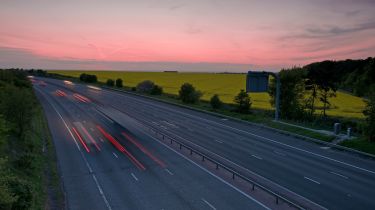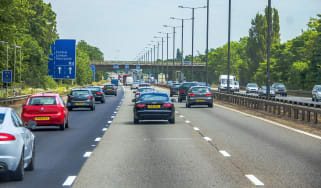Coronavirus: what COVID-19 means for drivers and car buyers
The Coronavirus outbreak affects the car industry, motorists and car buyers: here’s what you need to know

In the ongoing effort to further prevent the spread of the Coronavirus outbreak, the UK Government has implemented a third lockdown in England running from 5 January to at least mid-February. This one is stricter than the last, with schools closed to most children.
This means the new set of lockdown measures, which includes limitations on essential travel and meeting in private homes, will be enforced across England from tonight onwards. Elsewhere in the UK, Wales, Scotland and Northern Ireland are all in lockdown.
UK Government guidance on coronavirus: your first port of call
The new lockdown means that car dealerships will again have to close. However, buyers can still buy a car online and then choose whether to collect it from a dealership or have it delivered to their home.
While our health is paramount at this time, many people will also be worried about the knock-on effects of the virus on their everyday lives. The government has introduced unprecedented loans and grants to pay employees of businesses that have been forced to close, and has taken measures to prevent millions of citizens falling behind on rent and mortgage payments.
Running a car will be a concern for plenty of people. In this guide we will tell you everything you need to know; we’ll go through MoTs and servicing, the types of car journeys that are permitted, fuel availability and what it means if you’re looking to buy a car now.
- Buying a car online
- MoTs and servicing
- DPF advice during the Coronavirus outbreak
- Fuel availability and hygiene
- Cleaning your car, driving during lockdown and storage
- Driving tests cancelled
- What it means for car financing
Buying a car online
Showrooms are closed from 5 January onwards but you can still buy a car online during this period, with a number of specialist online retailers and dealerships offering ‘contactless’ home delivery or collection from a showroom.
How to buy a car during the coronavirus restrictions
Many manufacturers such as Ford, Kia, Dacia and Jaguar Land Rover (JLR) already allow you to buy a new car online. You simply configure a car on the manufacturer’s website, arrange payment, and the car is then delivered to your house when it’s ready. Many companies will even let you part-exchange your old car during the process. Buying a car online is becoming more popular, as you don’t have to deal with salesmen and trawl around different dealerships.
During the first lockdown, car production in Europe was largely suspended for several months, with manufacturers including Peugeot, Citroen, the Volkswagen Group, Ford and Nissan all shutting down their production lines.
As car factories have reopened with strict COVID-19 safety guidelines in place to ensure social distancing and hygiene guidelines are met, and as employees cannot work from home, it is expected that production will continue during the coming months. However, it’s worth noting the guidelines are likely to have increased production times, so bear this in mind if you’re ordering a new car or waiting for one you’ve already bought.
Our sister site BuyaCar has thousands of nearly new and used cars for sale, all of which can be bought online.
MoT tests and servicing
The first lockdown saw an MoT extension granted from 30 March onwards, with garages and service centres remaining open as an essential service. This time around, there won't be a further extension to MoT tests, because you can still book an MoT for your car as normal.
Other car-related businesses that are staying open include petrol stations, motorway service stations, automated car washes and car hire facilities, and you'll still be able to book taxis.
As many new cars come with variable servicing intervals that depend on mileage, rather than a set period of time. If you’re in lockdown, obviously you won’t be driving your car very often so the mileage won’t increase by much and your warranty won’t be affected. For drivers with fixed service intervals and specific scheduled maintenance, we recommend contacting your car’s manufacturer if your car’s service will be overdue by more than a month or 1,000 miles.
To read our full guide on how the lockdown affects MoT tests, servicing and repairs, click here.
DPF advice during the Coronavirus lockdown
The conditions of the new lockdown are likely to mean that motorists will use their cars less frequently and will make shorter trips when they do have to drive. While you are allowed to use your car to travel for exercise, you “should avoid travelling out of your local area.”
Given how a diesel particulate filter (DPF) works, this scenario has the potential to cause problems for owners of cars with diesel engines because there is no opportunity to burn off the soot that accumulates in the filters.
The Independent Garage Association (IAG) has recommended that owners of diesel cars avoid regular journeys of 15 miles or less where possible to avoid clogging the DPFs on their cars. This is particularly important at a time when opportunities to drive your car far enough and fast enough to burn off soot in the filter are likely to be limited.
Owners concerned about the condition of their DPF during this period should contact a garage and speak to a mechanic.
Click here to read more information about DPFs.
Fuel shortages and petrol station hygiene
As with the original lockdown, the new restrictions are highly unlikely to cause fuel shortages - fewer people will be out driving their cars on a regular basis. With less demand, you may even see lower prices at the pumps in the coming weeks, as we did in March and April of last year.
It’s worth being extra careful at petrol pumps and when paying because the virus can survive on surfaces. Having protective equipment, such as disposable gloves, for refuelling is a good idea, and we’d recommend using contactless payments where possible as chip-and-pin buttons may harbour germs.
Cleaning your car, driving during lockdown and storage
For those using their cars for essential journeys, we’d also recommend cleaning your car’s interior as often as possible, preferably with anti-bacterial products. You may need to use household cleaners, but make sure they’re suitable for plastics, leather and/or upholstery before use. It’s particularly important to clean the areas that you or your passengers most regularly touch: door handles, the steering wheel, gearlever, handbrake, radio controls and seatbelts.
The government’s guidelines state that you must only drive when it’s essential, such as going to work if you can’t work from home, shopping for food or medicine, or attending a medical appointment. It is likely that the police will again be able to issue fines for non-essential travel. If you want to read more about driving your car during the pandemic, we have a helpful guide.
Motorists no longer driving their cars may find helpful advice in our article on storing a car for an extended period. If you aren’t likely to need your car for any essential journeys at all, you may want to consider getting a SORN for your car.
Driving lessons and tests
On 5 January, it was confirmed that driving tests and lessons will be suspended until the current restrictions are lifted, as they were in the first two lockdowns.
Impact on car finance and leasing
There’s no specific advice for the impact of coronavirus on car finance and leasing payments as yet, but you should contact your lender as soon as possible if you experience financial difficulty, as assistance or payment holidays may be available.
Read our full guide to buying a used car online.
Recommended

Suzuki’s new 10-year warranty is free – here’s how to get it

Classic car tax exemption: which historic vehicles qualify?
Most Popular
Tips & advice

Car dashboard warning lights: what does each symbol mean?

Electric car charging stations: public networks, charger types, apps and maps








